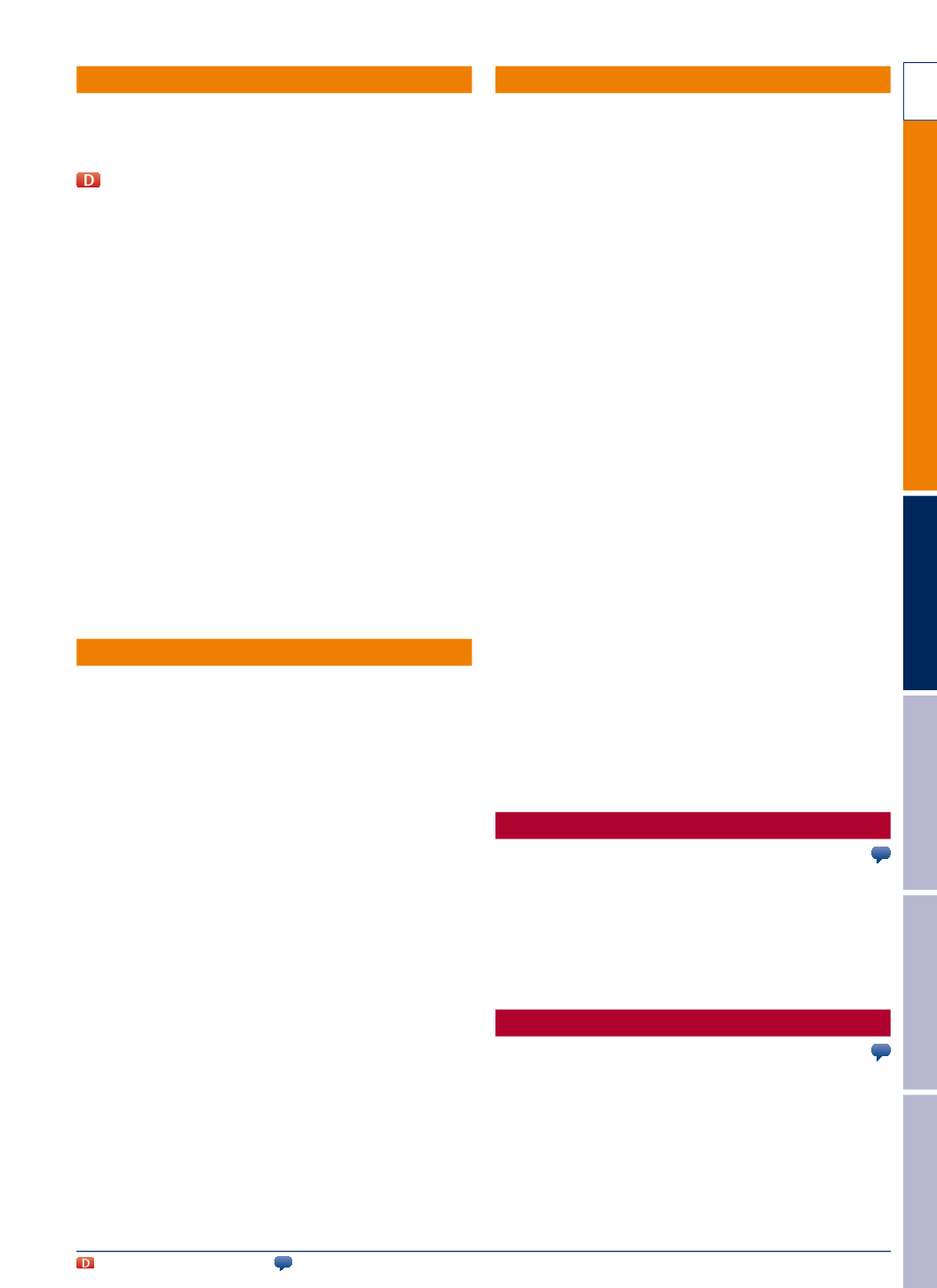

MONDAY
TUESDAY
WEDNESDAY
THURSDAY
German language Session
Q&A Modul
101
SCIENTIFIC PROGRAMME
S-018 (d)
Symposium (German)
11:45– 13:15
|
Room M1
TOPIC 2:
Mental disorders due to psychotropic
substances, behavioural addictions
Aktuelle Erfahrungen zum Einsatz von Disul-
firam: wirksam trotz Erlöschen der Zulassung?
›
DGPPN Section: Abhängigkeitserkrankungen
Chairs:
Ulrich Zimmermann, Germany
Ursula Havemann-Reinecke, Germany
001
Aktueller Stand der pharmakologischen Wirkun-
gen von Disulfiram und seine klinische Effektivität
Ursula Havemann-Reinecke, Germany
002
Disulfiram in der ambulanten Therapie alkohol-
abhängiger Menschen
Peter Brieger, Germany
Karen Hochsattel
003
Kumulative Abstinenzdauer bei hoch rück-
fallgefährdeten Alkoholikern während intensiver
ambulanter Therapie mit Disulfiram
Ulrich Zimmermann, Germany
Maik Spreer
004
Biologische Wirkmechanismen von Disulfiram
Dirk Wedekind, Germany
OS-12
Oral Presentation Session
11:45– 13:15
|
Room Dessau 6
TOPIC 32:
Violence and trauma
Disorder of sexual preference and sexual abuse
Chairs:
Martin Driessen, Germany
Sathyanarayana Rao, India
001
The prevention of and response to abuse in the
Catholic church
Sheila Hollins, United Kingdom
002
Sexual abuse of minors within the Catholic
Church and other institutions: introduction to a
research project and results of a meta-analysis
Harald Dreßing, Germany
003
Evaluation of a training preventing sexual
abuse for girls with intellectual disabilities
Olaf Reis, Germany
Frank Häßler, Martin Sobanski, Mascha Lenger, Franz
Joseph Freisleder, Wencke Chodan
004
German media coverage about pedophilia and
its effects on preventive therapy programs
Daniela Stelzmann, Germany
Daniel Maier, Sünje Paasch-Colberg, Jens Wagner
OS-13
Oral Presentation Session
11:45– 13:15
|
Room R2
TOPIC 1:
Neurocognitive disorders, organic mental
disorders, dementia
Neurocognitive and organic mental disorders
Chairs:
Josef Priller, Germany
Johann Steiner, Germany
001
Vascular depression reevaluated on the base of
brain metabolism in organic brain syndromes
Gerd Krüger, Germany
002
Heterogeneity of hypometabolic brain dysfunc-
tion in amnestic mild cognitive impairment
Michel Grothe, Germany
Josh Feitelson, Martin Dyrba, Ralph Buchert, Stefan
Teipel
003
The case of clinical observation and hormono-
therapy of Hashimoto's encephalopathy
Svitlana Bazik, Ukraine
004
Mild cognitive impairment disrupts precuneal
connectivity in Parkinson's disease
Tommaso Ballarini, Germany
Ondrej Bezdícek, Filip Ružicka, Karsten Mueller, Tomáš
Sieger, Evžen Ružicka, Jan Roth, Josef Vymazal, Robert
Jech, Matthias L. Schroeter
005
Postoperative delirium and postoperative cogni-
tive dysfunction: is there relationship to dementia?
Liliana Pereira Ferreira, Portugal
Lígia Castanheira, Carla Ferreira
006
Cognitive impairment due to cerebral amyloid
angiopathy: clinical phenotypes
Kasia Gustaw Rothenberg, USA
KN-04
Keynote Lecture
13:30– 14:30
|
Hall B
TOPIC 35:
Psychiatry and society
Open cities
Chairs:
Mazda Adli, Germany
Andreas Meyer-Lindenberg, Germany
Speaker:
Richard Sennett, USA
KN-05
Keynote Lecture
13:30– 14:30
|
Hall A4
TOPIC 21:
Rehabilitation and work
Peer support: the foundation of experiential
knowledge
Chairs:
Johannes Wancata, Austria
Candelaria Mahlke, Germany
Speaker:
Alison Faulkner, United Kingdom


















